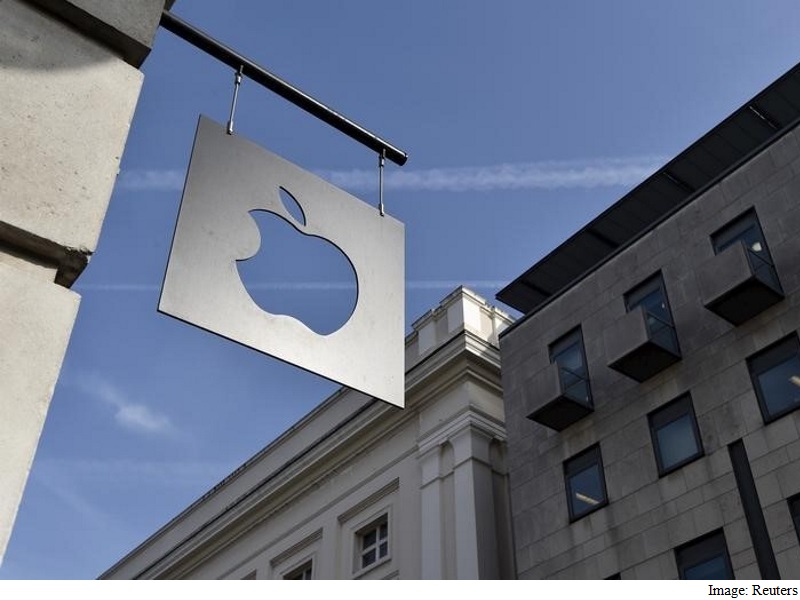
The US Justice Department on Thursday said Apple Inc’s rhetoric was “false” in a high-profile fight over the government’s bid to unlock an encrypted iPhone belonging to one of the San Bernardino shooters.
Last month, the Federal Bureau of Investigation obtained a court order requiring Apple to write new software and take other measures to disable passcode protection and allow access to shooter Rizwan Farook’s iPhone.
Apple has not complied. It said the government request would create a “back door” to phones that could be abused by criminals and governments, and that Congress has not given the Justice Department authority to make such a demand.
The filing was the Justice Department’s last chance to make its case ahead of a hearing set for March 22 in a Riverside, California federal court. The clash has intensified a long-running debate over how much law enforcement and intelligence officials should be able to monitor digital communications.
In its brief, prosecutors noted that Apple has attacked the FBI investigation as “shoddy” and portrayed itself as “the primary guardian of Americans’ privacy.”
Apple’s rhetoric “is not only false, but also corrosive of the very institutions that are best able to safeguard our liberty and our rights: the courts, the Fourth Amendment, longstanding precedent and venerable laws, and the democratically elected branches of government,” prosecutors added.
The government said Apple “deliberately raised technological barriers” to prevent execution of a warrant.
Apple has said the government’s request would open the company to pressure from repressive regimes to provide similar assistance. But the Justice Department on Thursday questioned whether Apple is actually resisting such requests.
“For example, according to Apple’s own data, China demanded information from Apple regarding over 4,000 iPhones in the first half of 2015, and Apple produced data 74 percent of the time,” prosecutors wrote.
Apple General Counsel Bruce Sewell on Thursday said the brief reads “like an indictment” and called the claims about providing data to China a “smear” based on thinly sourced news reports.
Sewell said it was insulting to suggest Apple deliberately set out to protect phones from warranted searches, saying its measures are intended to keep everyone safe from multiple threats.
(Also see: US Police Say Criminals Like Apple’s iPhone Because of Encryption)
Apple Chief Executive Tim Cook has said he is willing to take the case to the Supreme Court.
The FBI says Rizwan Farook and his wife, Tashfeen Malik, were inspired by Islamist militants when they shot and killed 14 people on December 2 at a holiday party. The couple later died in a shootout with police and the FBI said it wants to read the data on Farook’s work phone to investigate any links with militant groups.
Tech industry leaders including Google, Facebook and Microsoft and more than two dozen other companies filed legal briefs last week supporting Apple. The Justice Department received support from law enforcement groups and six relatives of San Bernardino victims.
The Justice Department has repeatedly attempted to frame the Apple case as one that is not about undermining encryption and that the court order narrowly targets a “non-encryption barrier” on one iPhone.
Asking for decryption services “would not be novel, either,” prosecutors argued on Thursday. They cited an 1807 case holding that a clerk working for Aaron Burr, then a former US vice president, could be forced to decode a letter penned by Burr if doing so did not lead to self-incrimination.
Prosecutors criticized claims by Apple that developing the new software code would be burdensome for the company. They noted Apple “grosses hundreds of billions of dollars a year” and would only need ask a handful of its 100,000 employees to work on the project for “perhaps as little as two weeks.”
The potential burden on Apple is a crucial test set out in a prior case, known as Mountain Bell, which held that a local phone company could be ordered to programme the equipment in its facilities in order to trace calls in progress.
That case should be binding precedent in the San Bernardino matter, prosecutors said.
But an Apple lawyer on Thursday said the Mountain Bell case was far less demanding of that company than the present case would be of Apple.
Earlier this week the government sought to overturn a ruling protecting Apple from unlocking an iPhone in a New York drug case which raises similar issues. A Brooklyn judge on Thursday gave Apple two weeks to respond to the government’s bid.
[“source-ndtv”]